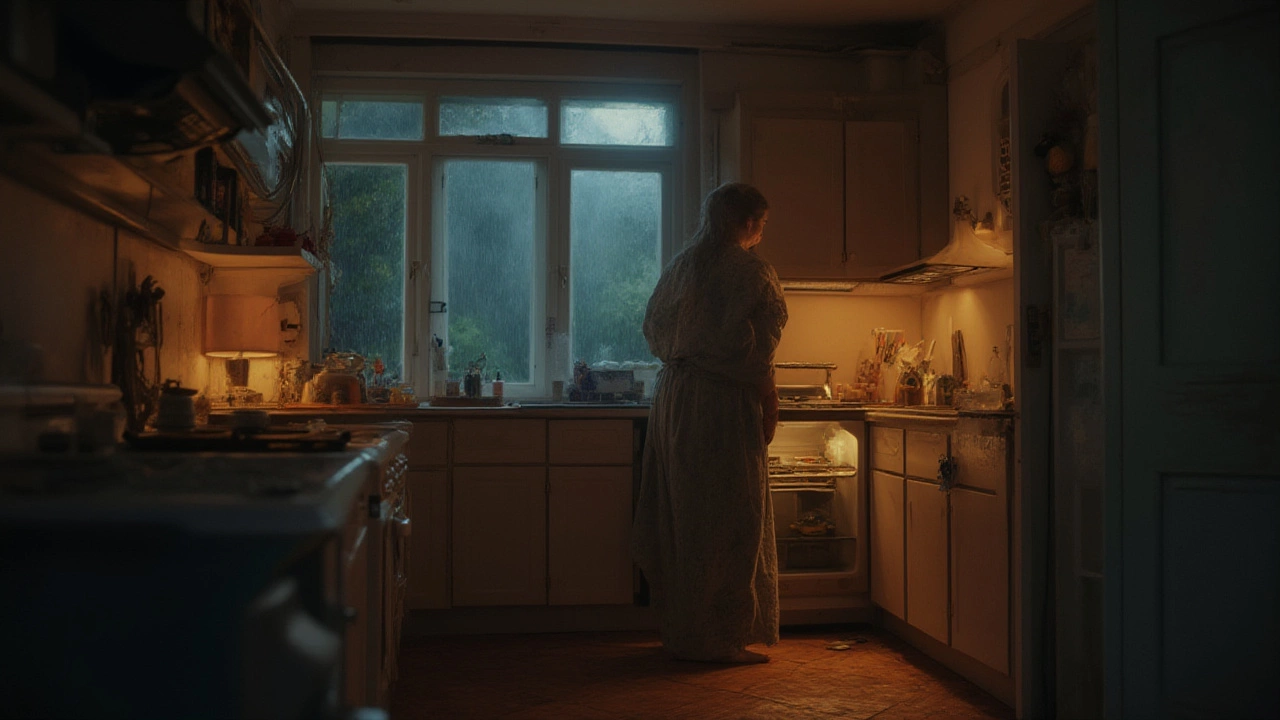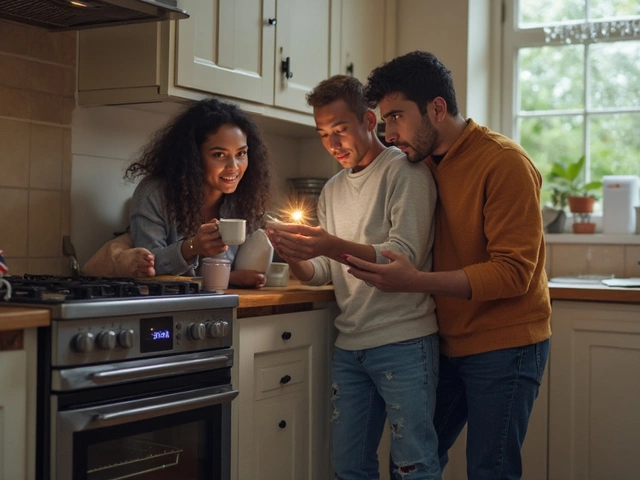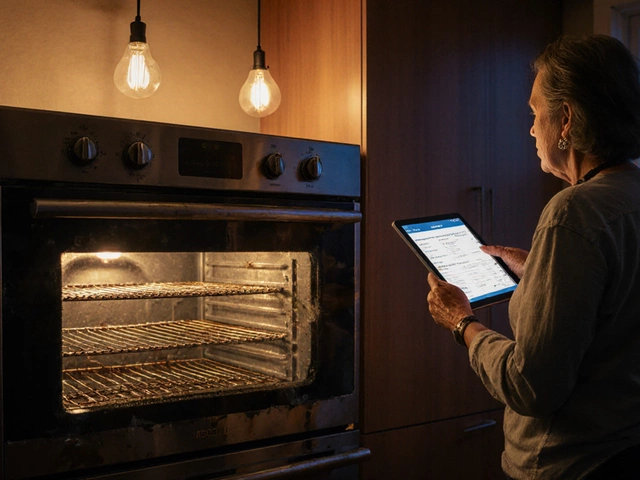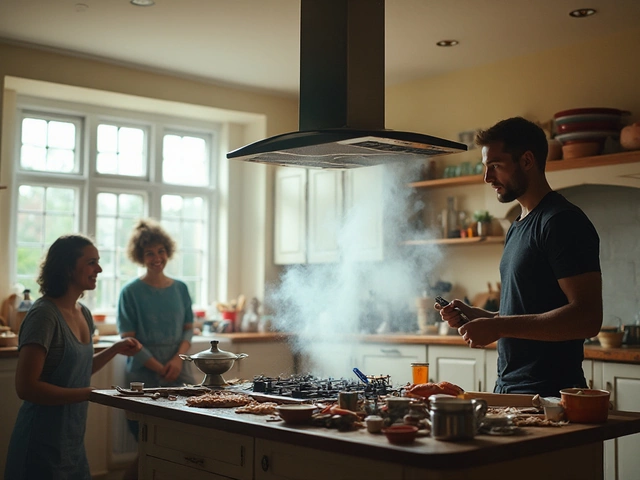Ever walked into the kitchen and smelled something burning? Most oven fires start from things you can control. A clean oven, the right cookware, and a quick glance before you turn the heat on can stop a disaster in its tracks.
Food spills are the number one cause of oven fires. After each use, let the oven cool and wipe away crumbs, grease, and any sauce splatters. If you see a buildup on the bottom tray or walls, soak a cloth in warm, soapy water and scrub it out. A clean surface means less fuel for a fire.
Metal pans with loose handles or plastic dishes that aren’t oven‑safe can melt or spark. Always check the label to make sure a dish can handle the temperature you plan to use. Avoid covering the oven floor with foil unless the manufacturer says it’s OK – foil can reflect heat and cause hot spots that ignite food.
Don’t leave anything—potato skins, paper towels, or even a forgotten pizza box—inside the oven while it’s on. Those items can catch fire in minutes.
Most home ovens are designed to run up to 260 °C (500 °F). If a recipe calls for higher, consider using a grill or broiler instead. Also, never set the oven to “high” if you’re unsure what the temperature actually is; use the built‑in thermostat or a reliable oven thermometer.
If your oven isn’t heating correctly—like an electric oven that won’t warm up—don’t keep guessing. A faulty heating element can overheat and spark. Call a professional to check the element before you keep using it.
It’s tempting to step out for a quick call, but leaving an oven unattended is a recipe for trouble. If you need to be away for more than a few minutes, lower the temperature or turn the oven off and finish later.
Even if you use a timer, remember that timers don’t stop a fire. If you hear crackling or see smoke, turn the oven off immediately and open a window.
If a fire starts, stay calm. Close the oven door quickly—this cuts the oxygen supply and often puts the fire out. Never use water on a grease fire; it can spread the flames. Keep a small fire extinguisher (Class B) nearby and know how to use it. If the fire won’t die down, evacuate and call the fire brigade.
Regularly check your home’s smoke alarms and replace batteries annually. A working alarm can give you the few precious seconds you need.
Even with careful use, parts wear out. Have a qualified technician inspect your oven every couple of years, especially the heating element and wiring. A simple check can spot loose connections that might spark later.
Remember, a safe oven means a safe kitchen. By keeping it clean, using proper cookware, watching the heat, and staying alert, you dramatically lower the chance of a fire. Apply these habits every time you cook, and you’ll enjoy tasty meals without the worry of a fire breaking out.

Leaving an electric oven on overnight sounds harmless, but it could spell real trouble. Learn the risks, facts, and safer options for your late-night cooking needs.

Electric ovens are handy, but they're not immune to problems. This article breaks down the most common faults people face, from ovens not heating properly to strange noises and error codes. You’ll get real tips on troubleshooting and signs when it’s time to call in the pros. Save time (and maybe some frustration) by knowing what to look out for. Find out why your oven might let you down and how to deal with it.

Find out when fixing a 15‑year‑old oven makes sense, compare repair costs with buying new, and learn safety, energy and environmental factors to help you decide.

When your boiler breaks down, taking a comfortable shower suddenly feels like a luxury. This article explains exactly what happens to your shower when a boiler goes out, ways to still get clean, and when you should call in a professional. Learn alternative methods for washing, bust some myths about cold showers, and get tips on preventing future breakdowns. We even cover what to do if you have kids or need to keep up with fitness routines. Staying clean during a crisis isn’t impossible—you just need a bit of know-how and some creative solutions.

Wondering if you can change your kitchen extractor fan yourself? This guide covers steps, safety, tools, common mistakes, and installation tips for a smooth DIY experience.

Extractor fans are crucial for maintaining fresh air and reducing humidity in various parts of a home. When these fans malfunction, it's important to know who to call for repairs. This article guides homeowners on how to find reliable extractor fan repair services. We'll look at why professional help is essential and what to consider when selecting a repair technician.